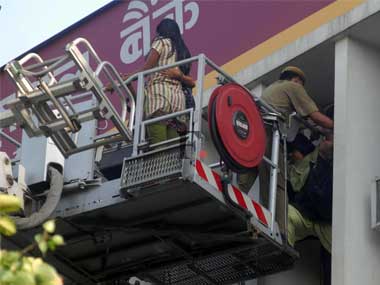Delhi-based Punjab National Bank (PNB) on 14 February disclosed that it has detected a $1.78 billion (approx. Rs 11,400 crore) fraudulent and unauthorised transactions scam “for the benefit of a few select account holders” with the help of the bank staff at one of its Mumbai branches. “In the bank these transactions are contingent in nature and liability arising out of these on the bank shall be decided based on the law and genuineness of the underlying transactions,” the bank said, adding it had reported the matter to the investigating agencies, read the CBI.
PNB bemoaned it had been defrauded of about Rs 11,400 crore by diamond jeweller Nirav Modi, his maternal uncle Mehul Chinubhai Choksi, and other relatives through a clutch of companies they own in collusion with two bank employees who issued letters of undertaking (LOU), which is nothing but a bank guarantee. The LOU was relied upon by overseas branches of Axis Bank, Allahabad Bank and Union Bank of India to make payments for diamond imports from foreign suppliers.
The fraud involving the dishonest PNB Mumbai employees joyously issuing the LOUs without proper authorisation for illegitimate favours from Nirav Modi, Choksi and other complicit in the fraud. These other banks are gunning for payments by PNB. And they are right because an LOU holder can hold the LOU issuer liable. Indeed that is the essence of LOU or LOC i.e. letter of credit.
Having paid the foreign suppliers, these banks definitely can encash their LOU. PNB is trying to wriggle out of its commitment on the plea that while it is responsible for the dishonorable acts of its employees, the other banks must also own up some responsibility because their employees too have, according to PNB, been party to the gigantic fraud.

Representational image.
Blockchain technology which is such a rage these days is what has been recommended for averting systemic frauds such as the one described above. Though it is originally associated with the cryptocurrency Bitcoin, blockchain technology is now finding acceptance right across the financial world as well as in the world of record keeping.
Andhra Pradesh government has already adopted it to maintain land records. Indeed the block chain is an incorruptible digital ledger of economic transactions that can be programmed to record not just financial transactions but virtually everything of value.
Information held on a blockchain exists as a shared, and continually reconciled, database. This is a way of using the network that has obvious benefits. The blockchain database isn’t stored in any single location, meaning the records it keeps are truly public and easily verifiable. No centralised version of this information exists for a hacker to corrupt. Hosted by millions of computers simultaneously, its data is accessible to anyone on the internet.
The Indian banking industry needs to embrace blockchain technology quickly. PNB type frauds could have been easily avoided had it been in place. The corrupt PNB officials couldn’t have introduced a fraudulent and unauthorised LOU into the system because it would have caught the attention of the higher ups at PNB sooner than later.
The fraud would have shown up the same day, and PNB could have immediately alerted the entire banking community. A standalone LOU register at PNB Mumbai branch is what emboldened the fraudsters to do the scam, secure in the smug knowledge that by the time PNB detected it, they would have already gotten the money.
Blockchain technology carries and elevates the age-old auditing mantra of internal check -- no person should be allowed to complete a transaction all by himself -- to its highest and logical level. The corrupt PNB officials would not have done this had they known that their unauthorised LOU would stick out like a sore thumb in real time for the higher ups to take notice.
The beauty of blockchain technology is while there is no centralised record keeping, anyone having skin the game is constantly kept in the loop. It is a collective record keeping with the details becoming available to everyone involved without becoming susceptible to corruption from scamsters for the fear that the lid would get blown out as soon as the fraud is committed.
(The writer tweets @smurlidharan)
Published Date: Feb 15, 2018 12:04 PM | Updated Date: Feb 15, 2018 12:41 PM




















